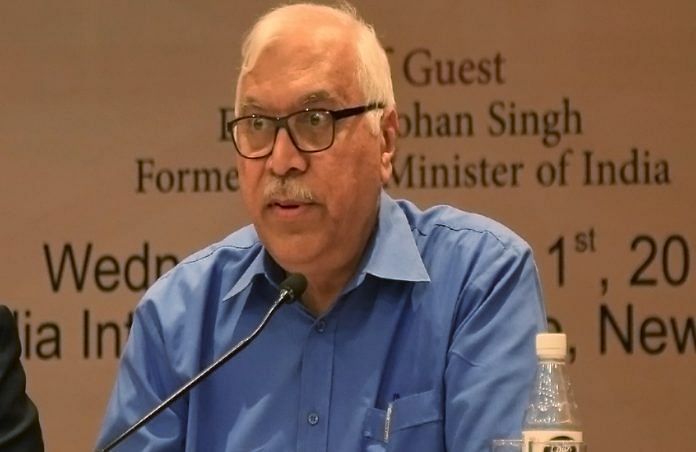New Delhi: Former chief election commissioner S.Y. Quraishi called the findings of US-based Pew Research Center’s new survey on religion in India “too good to be true”.
Speaking at a webinar hosted by the Centre for Policy Research (CPR) and the Trivedi Centre for Political Data (TCPD) Monday, Quraishi said: “I was a bit taken aback. I found these findings too good to be true. It seems there’s hardly any difference between Hindu and Muslims’ opinions.”
The survey, based on nearly 30,000 face-to-face interviews of Indian adults from 17 November 2019 to 23 March 2020, found that Indians support religious tolerance but prefer to live and marry within their community.
Quraishi, who is currently a Distinguished Fellow at TCPD, suggested that the findings do not account for the prevailing “hate discourse” and “polarisation” in the country.
The other panelists included Neha Sahgal, Associate Director of Research at Pew Research Center, Satendra Kumar, political ethnographer, Neera Chandoke, former professor of political science at Delhi University, and Jonathan Evans, Research Associate, Pew Research Center.
Speaking to two other panelists from Pew Research Center, Quraishi said: “You mentioned it was random sampling, but it seems you landed up at the doors of very secular people”.
Sehgal said Muslim respondents were “not shy” in answering survey questions and in taking a stand contrary to the ruling government e.g. their views on a universal civil court.
According to the survey, a majority of Muslims (74 per cent) say they should be allowed to have their own courts to resolve family and property disputes.
Also read: Why have Modi’s rivals failed to challenge him? This survey of Indians’ religiosity has clues
Survey findings ‘unexpected’
Neera Chandoke called the survey “ambitious” and “unexpected”. Agreeing with Quraishi, she said: “The proposition that India is a plural society — which is an empirical proposition — does not lead to the proposition that pluralism is a value”.
Responding to the survey’s findings that equal shares of Hindus and Muslims believe in karma, she asked why the question was asked when Muslims don’t believe in rebirth. “There are religious tolerance traditions but there is also a political project of dividing people,” she said, adding that this is the goal of the ruling BJP.
Meanwhile, Kumar suggested that caste and class should have also been larger factors in the survey. Based on his fieldwork in Uttar Pradesh, he cited the example of Jats who started identifying less with their caste and more as Hindus upon entering the middle class.
“The survey has found that Indians are tolerant so long as you are not disturbing the equilibrium but what happens when you start exercising democratic rights?” he asked. “The 2013 riots in western UP was an example of this”.
In August–September 2013, Hindu and Muslim communities clashed in Muzaffarnagar district of Uttar Pradesh, resulting in at least 50 deaths.
Asked if the survey accounted for class and age disparities, Sahgal and fellow researcher Jonathan Evans, said the sample was aligned with the 2011 census data and there were negligent generational variations between respondents.
Also read: Who is your neighbour? What we are not seeing in Pew study on India



